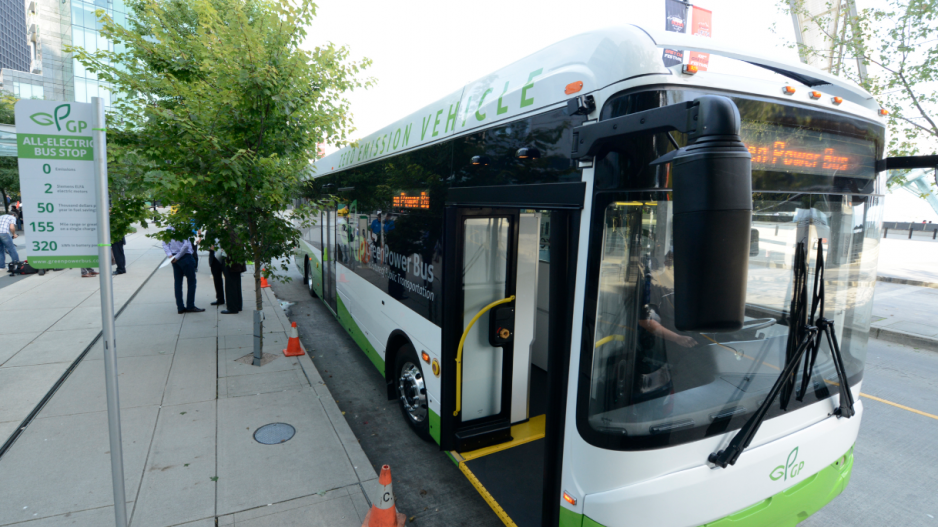Like the barely audible sound GreenPower’s (TSX-V:GPV) electric buses make when they’re on the road, business at the Vancouver-based coachbuilder is humming along.
The manufacturer of zero-emission buses entered the marketplace in October 2014 with plans to sell up to 10 vehicles within six months.
Instead, it took a year to make that first sale but the company made up ground securing three deals for 23 buses all within October 2015.
“We’ve very much kept an eye to maintaining our cost structure so as such that we don’t need a lot of sales to break even,” GreenPower chairman Fraser Atkinson told Business in Vancouver.
“Anything beyond that is profitable and generating cash flow.”
In early October, GreenPower made its first-ever sale to EV Power Corp. for an all-electric double decker bus worth US$1.1 million.
The second deal was with Adomani, a California-based school bus operator, for two all-electric buses at US$450,000.
That relationship with Adomani was cemented further October 29, when the two companies signed a letter of intent for GreenPower to produce 20 all-electric buses for $4 million by late 2016.
The companies have also agreed to get 150 all-electric school buses on the road by 2017, although sales haven't been finalized.
But it’s transit buses Atkinson said would be pivotal to the company’s fortunes moving forward.
The buses are powered by an electric drive system. Without an engine, a transmission or a fuel tank, it still manages to travel 250 kilometres after a full charge, which has caught the eye of Washington state lawmakers.
B.C.’s southern neighbour has a US$60-million contract up for grabs to produce 100 heavy-duty buses within one year. The contract could further extend to 800 buses worth US$480 million, although the Washington state government does not guarantee any minimum purchase.
“(The contract) is clearly head and shoulders above what any other state has done in terms of the transit sector,” Atkinson said.
It also comes attached with a longer sales cycle due to many layers of decision-makers, so a decision could be far off.
Atkinson’s hopeful, though, since Washington states’ Department of Enterprise Services said it would not make a decision until it sees GreenPower’s 2016 model.
The time factor has also come into play regarding U.S. Buy America rules.
Businesses and transit authorities seeking U.S. federal grants for rolling stock — railway cars, subways and heavy-duty buses — must purchase products that qualify under the Buy America provisions.
“It’s probably one of the most protective legislative pieces coming down the pipe,” Atkinson said, adding one of GreenPower’s most pressing objectives now is to buy a facility in the U.S. where final assembly will be completed.
And while the company is based in Vancouver, the city won’t turn into Canada’s clean-vehicle manufacturing hub as componentry assembly will begin in China and final assembly will take place stateside.




